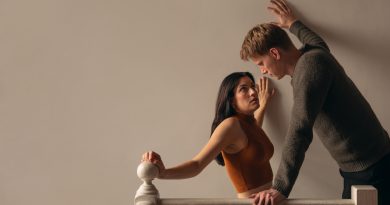All-Femme, Asian-American CYMBELINE Reimagines Shakespeare for a New Era
When people speak of Shakespeare and his enduring ability to surprise, delight, and provoke, they rarely expect an all-femme, all-Asian American production to set the stage. Yet that’s exactly what’s happening off-Broadway this winter, as the National Asian American Theatre Company (NAATCO) presents Cymbeline in a groundbreaking new interpretation. This reinvigorated version of one of the Bard’s final plays marries a modern verse translation by Andrea Thome with a cast led entirely by Asian American women—a move that upends tradition even as it pays homage to Shakespeare’s timeless storytelling.
Beginning performances at the Lynn F. Angelson Theater on 18 January, Cymbeline is due to officially open on 23 January. Directed by Stephen Brown-Fried, this production stands out not only for its heritage but also for its approach to language, thanks to a new script that aims to make Shakespeare’s lines more immediate without losing the poetry that centuries of theatregoers have adored.
A New Verse for an Old Tale
At the heart of this Cymbeline is a fresh translation from playwright Andrea Thome, commissioned in partnership with Play On Shakespeare—an initiative that seeks to create modern verse versions of Shakespeare’s plays, with the aim of widening access without sacrificing depth. For many purists, the notion of “translating” Shakespeare can feel daunting, perhaps even heretical. But Thome’s version strives for clarity, not compromise. It’s about emphasising the beats of the story—betrayals, disguises, reconciliations—so that audiences can revel in the narrative’s complexities rather than get lost in archaic turns of phrase.
That principle resonates deeply with NAATCO, an organisation known for championing productions that re-centre voices often left on the margins. Casting only Asian American women in a play historically populated by European men is a statement in itself, defying expectations of who can “rightfully” inhabit Shakespeare’s characters. This creative choice is more than just an aesthetic flourish; it’s a way of rediscovering the text through the lens of artists who seldom get that spotlight.
A Cast That Defies Convention
All told, the production boasts an ensemble that’s as formidable as it is distinct. Amy Hill takes on the title role of King Cymbeline, leading a cast that includes:
- Purva Bedi
- Annie Fang
- Anna Ishida
- Narea Kang
- Jennifer Lim
- KK Moggie
- Maria-Christina Oliveras
- Julyanna Soelistyo
- Sarah Suzuki
- Jeena Yi
This is the sort of casting that might have left conventional theatregoers scratching their heads just a decade or two ago. But times are changing—and so, too, is the theatrical landscape. In many ways, the presence of an all-Asian American, all-femme cast underscores the universal themes of Cymbeline: identity, heritage, transformation, and an individual’s fight against rigid societal norms. Shakespeare, of course, wrote in a context of all-male casts. Reversing that dynamic might yield intriguing nuances, especially when it comes to how we perceive power dynamics and relationships on stage.
The Artistic Vision Behind the Scenes
Leading the creative team is director Stephen Brown-Fried, who sees Cymbeline as one of Shakespeare’s richest (and sometimes most baffling) plays. In a recent statement, he highlighted the idea that the play was written in Shakespeare’s later years, possibly just as theatres were reopening after plague closures. With story elements spanning a conniving queen, a misguided king, and even a final scene with a literal deus ex machina, the script invites comedic, tragic, and fantastical moments to intermingle.
Brown-Fried’s vision involves leaning into the “brokenness of the world” but also celebrating the “exuberance of rebirth”—a duality that might speak powerfully to contemporary audiences. Especially in a time when theatre has faced unprecedented disruptions, paralleling Shakespeare’s alleged final chapters might make the experience all the more poignant.
The production’s design crew also reflects NAATCO’s commitment to fresh perspectives. Ant Ma’s scenic designs, Mariko Ohigashi’s costumes, Yiyuan Li’s lighting, and Caroline Eng’s sound come together to create a world at once Shakespearean and modern. For a story that traverses royal courts, pastoral hideaways, and mythical landscapes, design plays a critical role in tethering the tale to the play’s emotional arcs. It’s a balancing act: remain faithful to the text’s sense of grandeur, while leaving room for the cast’s unique spin on timeless characters.
The Impetus for Modern Verse
Talk of “modern verse translation” can raise eyebrows among theatre purists. But Cymbeline is a prime candidate for such an undertaking. For one, it’s loaded with genre shifts and narrative twists that can seem opaque under Elizabethan idioms. Simplifying or clarifying those lines could bring out the comedic and dramatic flourishes that might otherwise get lost in performance. Additionally, research and anecdotal evidence suggest that novice theatregoers often find Shakespeare’s language a barrier to full engagement. Andrea Thome’s updated text might serve as a bridge—especially for those from multilingual backgrounds who resonate with the idea of reinterpreting old stories in new words.
Organisations like Play On Shakespeare emphasise that these translations aren’t meant to supplant the Bard’s original text, but rather to coexist alongside it, functioning as an outreach mechanism. If an all-femme, Asian American cast can prompt someone to reconsider their assumptions about Shakespeare’s “universality”, then the modern verse can further dismantle the notion that classical theatre belongs to a privileged few.
All-Femme, All-Asian Recast
One might argue that the “all-femme, all-Asian American” approach is more than a production quirk; it’s a bold, political statement about representation. In an industry that still grapples with entrenched biases, the significance of seeing a stage brimming with diverse, female-identifying talent can’t be overstated. While some audiences might come purely for the novelty, many others appreciate how such casting reveals underexplored layers in Shakespeare’s text.
Take the question of power: a woman playing Cymbeline redefines how we experience the king’s authority and paternalism. Similarly, transformations of other characters—like the conniving queen or the exiled princes—acquire new resonance when performed by actresses who might know firsthand what it means to navigate societal expectations. It’s not about rewriting Shakespeare but unearthing emotional truths that a more conventional cast might overlook.
Engaging a Wider Audience
The hope, of course, is that more people will flock to see Cymbeline precisely because it’s less predictable than your standard classical fare. A variety of data indicates that younger theatre fans, as well as those from marginalised groups, tend to embrace shows that challenge norms. An all-femme, Asian American production can spark curiosity, offering theatre novices an accessible, even electrifying, introduction to Shakespeare.
For the more seasoned playgoer, the show could serve as a reminder that no text is static. Every generation, every culture, reclaims Shakespeare in its own voice. That’s how the Bard’s plays remain relevant: by adapting to new contexts while preserving their core. NAATCO’s approach is rooted in a dedication to ensuring that Asian American actors get equal opportunities—and that audiences see them tackling roles typically restricted to a different demographic. This, in turn, might inspire other companies to approach classical texts with similar imaginative leaps.
A Glimpse of Global Possibilities
While the production runs off-Broadway, one might wonder: could this initiative resonate in other regions, such as Australia or the UK, where Shakespeare is a linchpin of cultural identity? Indeed, theatre companies worldwide have been experimenting with diverse casting, from London’s Shakespeare’s Globe staging all-female casts in certain seasons, to Australian troupes reimagining the Bard through Indigenous perspectives. If NAATCO’s Cymbeline finds critical and commercial success, it may encourage similar undertakings abroad, thus broadening the global scope of Shakespeare performance.
In Australia, where Shakespeare festivals and mainstream productions consistently pull in crowds, a version akin to NAATCO’s might make waves—especially considering how theatre is often used to address questions of race, culture, and inclusion. It could pave the way for an Asia-Pacific “Cymbeline” featuring local, all-female talent, stirring the same discussions about empowerment and heritage. But for now, that’s speculation. All eyes are on the Lynn F. Angelson Theater, to see how well this show resonates with local critics and theatregoers.
A New Start for Shakespeare’s Final Play
As Cymbeline returns to the stage in an all-femme, Asian American format, directed by Stephen Brown-Fried and anchored by Andrea Thome’s modern verse, it stands poised to make a statement about the fluidity of theatrical tradition. Shakespeare wrote Cymbeline at a time when he himself was grappling with transformation—both in his art and in the world around him. With plague closures looming and an ever-shifting landscape for theatre, he appears to have embraced the idea that invention could indeed spring from adversity.
Half a millennium later, we find ourselves in a similar climate of reinvention, where lines of gender and ethnicity no longer define who “can” or “cannot” perform Shakespeare. NAATCO’s bold choice ensures that the wonder and complexity of the Bard’s text resonate anew. For fans of classical drama, it’s a compelling invitation to revisit a rarely staged piece. For those merely curious about the synergy between contemporary verse and ancient tale, it offers an entrée into a living tradition that belongs to everyone, not just a privileged few.
Perhaps that’s the biggest takeaway: even a play as centuries-old and convoluted as Cymbeline can feel startlingly immediate when reimagined by those rarely granted the spotlight. And if you’re in or around New York, maybe it’s time to secure tickets at NAATCO.org—to witness how a wicked queen, a conniving villain, and a headless body can all be conjured anew by a group of fiercely talented women rewriting the rules of classical theatre.



